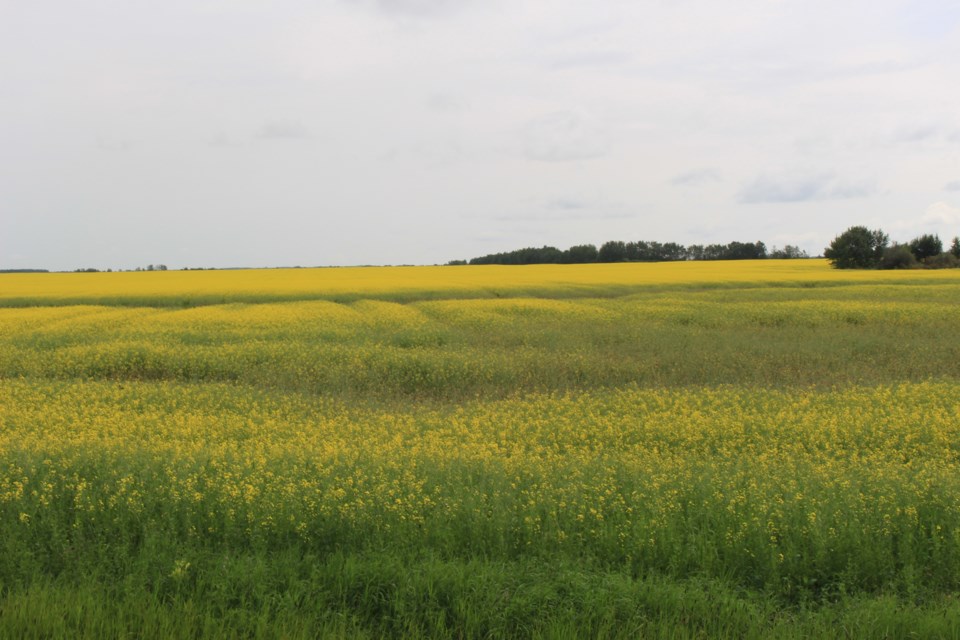WESTLOCK – While the provincial government remains focused on ensuring an adequate supply of food, little else has been specified about whether or not economic measures, aid packages or any sort of financial relief are in the works for farmers.
The second largest resource industry in Alberta has been kept on the list of essential services, meaning those businesses and producers don’t have to shut down.
“We’ve done so because obviously we need to feed people and food security is an essential part of this,” said premier Jason Kenney during an April 9 press conference with weekly newspapers across Alberta.
He added: “What keeps me most awake at night is the combined economic impact of the global coronavirus recession, the shutdown of our oil economy and, on top of that, the global collapse in the oil prices, and on top of that, five years of economic fragility,” said Kenney.
Where agriculture fits into the “combined economic impact” is less certain at the moment. The government did not clarify whether they have predicted how the pandemic will affect farmers.
“Minister (Devin) Dreeshen and I have held three teleconferences with hundreds of Alberta farmers and agri-food operators during the COVID crisis to ensure we’re communicating with them,” said Kenney.
In the meantime, the provincial government’s measures regarding agriculture have been focused on food supply within Alberta.
A partnership between Alberta Ag and the Canadian Food Inspector Agency is supposed to increase food inspector capacity. The Agriculture Financial Services Board is offering loan payment relief to its lending clients.
“Steps have also been taken to ensure interprovincial and Canada-US borders remain open for the movement of goods, address national and international supply chain issues quickly and efficiently, and ultimately, to ensure a safe and stable food supply for Albertans and Canadians,” said Dreeshen in a statement to the News.
The premier announced that the peak of COVID-19 cases in the province will likely happen in mid-May, with the peak of hospitalizations in late May. A series of post-peak economic measures will be announced, said Kenney.
The provincial government did not respond to a request for clarification on the place of agriculture in that series of measures.
In the forestry industry, for example, the government deferred timber dues for six months.
“Our government will continue to monitor the situation and is working on a plan to get Albertans back to work as we mitigate the impacts of COVID-19,” added Dreeshen.
A number of farmers in the province rely on foreign workers for seasonal work. To replace that now-missing workforce, Kenney called on farmers to make use of the available pool of recently unemployed Albertans.
“Folks, we are facing a huge wave of unemployment and you should be drilling down those hundreds of thousands of unemployed teenagers from high school who have been let out of school, to college kids, to other people who have lost their jobs, including people with modest skill levels, to get them engaged in these agricultural jobs.”
Later that day, the government released the Agriculture Jobs Connector website to facilitate ag employment.
As for the economic recovery strategy, led by the 12-person Economy Recovery Council, Kenney says the plan in agriculture is diversification.
“Just last night, I was on the phone with Chief Roy Fox of the Kainai Nation who is working on a partnership to develop poppy crops to provide for opioids for the pharmaceutical industry in Canada. One of the impacts of the coronavirus in Canada is going to be that we want to ensure pharmaceutical security within Canada, that we no longer have to rely on the Chinese to ship us pharmas, and that means we need to produce our own constituent elements to produce our own opioids. Those are the kinds of new diverse crops whose cultivation we are going to support.”
Only one person on the council represents the agricultural industry: Kendra Donnelly of Korova Feeders Ltd. in Acme.
Andreea Resmerita, TownandCountryToday.com
Follow me on Twitter @andreea_res
COVID-19 UPDATE: Follow our COVID-19 special section for the latest local and national news on the coronavirus pandemic, as well as resources, FAQs and more.



.jpg;w=120;h=80;mode=crop)